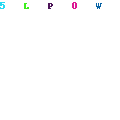LabXchange, developed by Harvard’s brightest, offers a no-cost digital platform designed to immerse users in the scientific method through firsthand experiences. It boasts top-notch online materials that blend learning and research sharing effortlessly, empowering both learners and educators to take charge of their educational journey. In a recent discussion, Martin Samuels, the leader of content creation at LabXchange, shed light on how they’re crafting engaging online lessons and simulations. This initiative not only enriches student and teacher experiences worldwide but also opens doors to limitless opportunities in the realm of education.
The Origins and Development of LabXchange: A Brief Overview
LabXchange was conceived by Professor Robert Lue, a distinguished member of our team at the Harvard Molecular & Cellular Biology Department. Since its inception in 2011 and subsequent launch in January 2020, the project has aimed to revolutionize science education globally. Leveraging resources from esteemed institutions like Harvard and MIT, LabXchange‘s mission is to kindle a worldwide passion for science by democratizing access to quality educational content.
The core belief driving this initiative is that science shouldn’t be perceived as an elite field exclusive to « born geniuses ». Instead, it’s about making science approachable and engaging for everyone. The platform achieves this through virtual lab simulations that offer hands-on experience even to those who might lack immediate access to physical labs due to geographical or institutional limitations.
What sets these simulations apart is their design—it’s not just about conducting experiments; it’s also about making mistakes and learning from them. This approach prepares users for real-world scientific inquiry with confidence. Essentially, LabXchange doesn’t just teach science; it immerses you in the process of discovery itself, ensuring when you step into a laboratory, you’re ready to hit the ground running.
In essence, LabXchange strives not only to educate but also inspire. It’s about breaking down barriers so that anyone can discover the joy of scientific exploration and feel empowered to contribute meaningfully in this fascinating field.
What types of programs do we provide and their organization?
At its core, LabXchange is a revolutionary approach to online learning, imagined and brought to life by Rob Lue, the visionary behind Harvard’s own digital education endeavors. Alongside him, managing director Gaurav Vazirani brings his rich experience from the edX program to further enrich this platform’s offerings. Together, they’ve embarked on solving a crucial problem in digital education: making sure valuable educational content doesn’t get lost in the vast ocean of information typical of Massive Open Online Courses (MOOCs).
Instead of following the traditional path of offering exclusive courses or certifications, LabXchange breaks new ground by providing a wide array of modular resources. These can be mixed and matched by educators and learners alike to tailor their own unique lessons. The platform boasts an impressive repository of around 6000 assets covering various subjects including biotechnology, available across multiple languages.
What sets LabXchange apart is its collaborative spirit – drawing on resources from reputable institutions like Khan Academy and the Smithsonian Institute among others. This amalgamation results in diverse teaching perspectives within the same subject area; whether it’s physics concepts explained through engineering lenses or biotechnology approached via drug design insights.
The true beauty lies in its user-centric design allowing individuals to curate their learning journey or pathway through these myriad assets based on personal interests or teaching needs. This customization ensures that users are not just passive recipients but active participants in their education process. Furthermore, sharing these crafted pathways with students exemplifies how teaching can be a profound learning experience itself.
In essence, LabXchange‘s innovative platform embodies flexibility and inclusivity at its best, championing the idea that we are all teachers and learners in our right. It encourages exploration, fosters creativity, and facilitates meaningful educational experiences outside conventional classroom settings.
How has COVID-19 affected schools and their communities?

Undoubtedly, the global pandemic has been a harrowing experience, causing widespread suffering. Amidst this chaos, it has unexpectedly served as a catalyst for educational evolution at Harvard. This challenging period prompted an introspective look into teaching methodologies, fostering improvements and encouraging global engagement in learning.
Significantly, this era has spurred faculty members to innovate their approach to education, whether in traditional classroom settings or through laboratory research. An exciting development is LabXchange, a dynamic platform that amplifies the outreach of academic research by connecting educators with students and avid learners worldwide.
Through LabXchange, discoveries are no longer confined within academia but are shared internationally, inviting users to interpret data creatively. This interaction not only sparks curiosity but also propels further inquiry into subjects of interest. It’s particularly beneficial for newcomers aiming to grasp foundational knowledge alongside cutting-edge findings.
Moreover, LabXchange stands out as a beacon of collaboration between Harvard and the Amgen Foundation. This partnership enriches the platform with insights from both esteemed academic researchers and industry experts from Amgen. Together, they create resources that unveil the intricacies of pharmaceutical sciences transparently and engagingly.
What sets LabXchange apart is its holistic educational approach—it doesn’t stop at basic scientific concepts taught by Harvard’s faculty but extends into real-world applications such as biotechnologies and pharmaceutical advancements. It paves the way for learners to explore various scientific careers beyond academia.
In essence, while the pandemic brought unprecedented challenges across sectors—including education—it also opened doors to innovative learning solutions like LabXchange. By blending rigorous academic research with practical industry insights against a backdrop of global access and collaboration, LabXchange epitomizes how crises can catalyze positive transformative change in education.
What current trends or technologies capture your interest in your field?
Biology dives deep into the fascinating study of how every structure, from molecules to entire organisms, plays a critical role in their functionality. Imagine trying to grasp the 3D shape of something through a flat image in a book; it’s tough. That’s where technology steps in, transforming these complex concepts into an interactive experience. By harnessing tools like Blender within virtual spaces, learners can manipulate models of cells or DNA, offering a hands-on approach to understanding their mechanisms.
My particular interest lies in the realm of DNA structures and how our bodies address mutations. It’s intriguing because, with the right tools, these intricate processes become surprisingly accessible and easy to comprehend visually.
The excitement doesn’t end there. We’re also delving into how virtual and augmented reality can revolutionize learning. Imagine using your phone to explore a molecular model as if it were right in front of you or integrating scientific lessons into your daily surroundings. This approach not only makes learning more immersive but also bridges theoretical knowledge with practical application seamlessly.
Another key focus is leveraging technology to overcome geographical barriers in education. Distance learning equipped with innovative tech opens up new avenues for mentorship; mentors and mentees can connect more dynamically than ever before. Whether it’s dissecting scientific papers together using annotation tools or sharing insights on complex topics, technology paves the way for enriched collaborative learning experiences.
In essence, we’re on the cusp of redefining educational methodologies by making complicated concepts intuitive through technological advancements that cater to our innate curiosity and drive for discovery.
What does the future of internet-based education look like?
In the evolving landscape of education, our collective experience spans both traditional classroom settings and the digital realm. This diversity in background has led us to a shared conclusion: the methodologies driving future educational endeavors must be firmly rooted in proven strategies. The transition towards online education is not about abandoning the principles that have shaped effective learning in physical classrooms but rather adapting them to fit a new, digital mold.
Interactive experiences are at the heart of this shift. It’s no longer sufficient for students to passively consume information through videos or texts. The modern learner should be empowered to make choices—be it selecting experiments, collecting data, or sharing findings with peers. This approach not only mirrors active learning techniques that have long benefited traditional classrooms but also enriches the online education experience by fostering critical thinking and engagement.
Central to our vision for online learning’s future is the concept of virtual labs. These platforms aim to replicate the best aspects of college laboratory sessions, guided by inquiry and supported by tools that help students understand complex concepts intuitively. By offering learners autonomy over their studies within a structured framework, we ensure they remain engaged and invested in their educational journey.
Our teaching philosophies are often colored by our own experiences as students; what was once considered « normal » may no longer serve today’s learners effectively. Recognizing and challenging these preconceptions is crucial as we design content that resonates with current educational needs while being informed by robust evidence and ongoing analysis.
As educators, acknowledging where improvements are necessary and continually adapting based on data will keep us aligned with the dynamic nature of online teaching—a field ripe with possibilities for innovation inspired by time-tested principles from traditional classrooms.




















